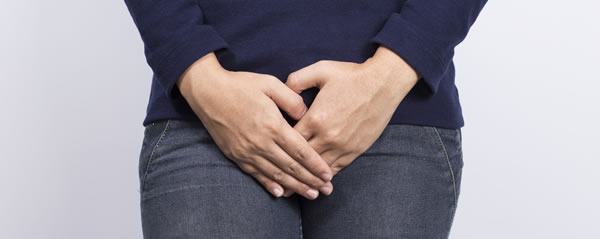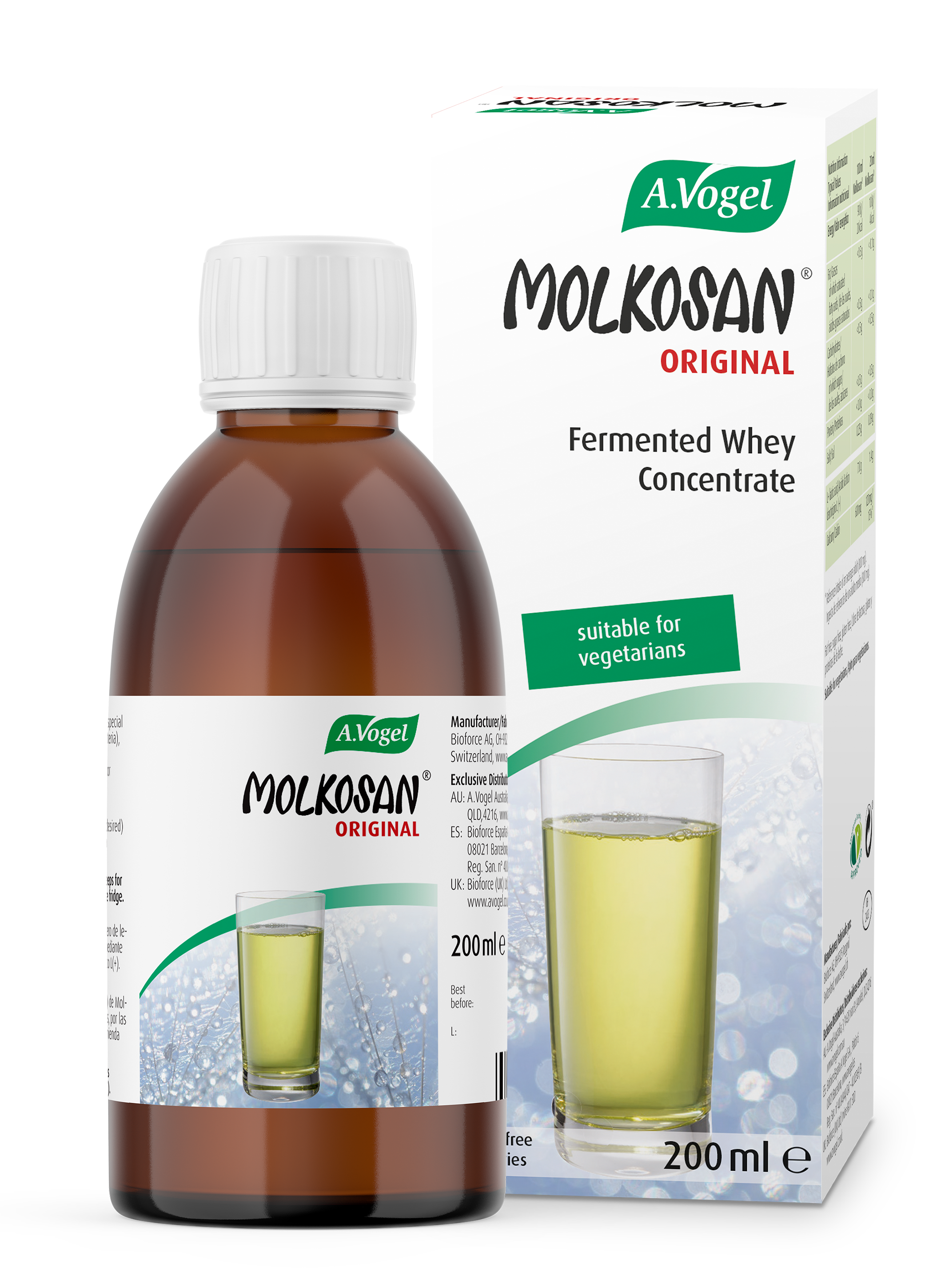Today's topic
Today, we're going to be discussing four unexpected vaginal problems that can happen during the menopause.

Menopause and vaginal problems
The main problem that happens during the menopause is that the decrease of oestrogen affects the production of mucus in the vagina. This mucus is very important for a number of reasons, particularly when it comes to your vaginal skin.
Now, the vaginal skin is probably the thinnest and most elastic skin in the body. If you think about it, it's got to stretch big enough when you're giving birth to a baby. So the skin is very supple and very stretchy and your vaginal mucus helps to keep that skin in tip-top condition.
This mucus is also slightly acidic which helps to prevent nasty bacterial and thrush infections getting a hold in the vagina; but, it also helps to support a combination of friendly bacteria that live in the vagina. Now, we all know that we have lots of different friendly bacteria in our digestive tract, but they are also there in the vagina as well.
The problem here is that when the production of mucus decreases, that will also affect the level of friendly bacteria. It will affect the elasticity and the hydration of the vaginal walls, too. So, unfortunately, our poor vaginas get tremendously affected during the menopause.
A little while ago, I did do a video blog on six of the more common symptoms that can happen to the vagina in the menopause such as things like dryness, thrush, cystitis, pelvic pain, different smells, and what happens to the skin. All these issues are very distressing; they can be very uncomfortable, very painful, and also very embarrassing, but today we're going to look at less common ones. I do get questions about them on a regular basis.
Unexpected and less common vaginal problems
So, let's look at these particular ones.
1. Bleeding after intercourse
So, the first question that I often get asked about is bleeding after sex. What happens here is, if your vaginal walls are less elastic, they can also be really thin and, if your mucus production has decreased, there can be a bit of dryness. Then, all of the friction that goes on during intercourse can be enough to irritate, damage and possibly tear parts of the vaginal wall.
And very often, this is what triggers the bleeding. Most women will find they maybe just get a few spots of blood and then that's it. It doesn't happen until the next time. The one thing to do here, that is really important, is to please get this checked out by your doctor first, just to make sure that there's nothing else going on.
What else can help?
The other thing that you can look at is Sea Buckthorn Oil. This is a lovely one to help with vaginal dryness and it can help with dryness elsewhere that's going on in the menopause. So, it's a nice one to have as a daily supplement if you can, regardless of what's going on.
I know it's not always possible depending on when the moment strikes, but the other thing you could do is have some natural lubricant handy. There is a super company called Fair Squared that deal with fair trade companies and they make a range of really lovely, vegan, vaginal products such as vaginal washes and also vaginal lubricants. Just look them up on Google and you'll be able to get them from a number of health food shops.
Remember here, too, to drink plenty of water because dehydration is going to be a big issue with this one as well.
2. Vulvodynia
The second one is called vulvodynia and this is one of the really horrible ones. It's basically caused by pain. Now, as you can imagine, the whole vaginal area is jam-packed full of nerves, and what they know with vulvodynia is that these nerves can be affected.
They can end up either over firing or else they become so sensitive that just about anything can affect them. This will trigger things like a burning sensation or it can be pain or just total discomfort. And this can happen all the time, so it's not something that always comes and goes.
It can happen when you're walking, when you're sitting and when you're sleeping. The problem here is that there's no known real cause. It's just something that seems to happen a lot during the perimenopause and the menopause.
What can help?
There are a number of things that you can do here but the main ones are things not to do. Now, this is quite a long list here. You are basically looking at anything that's going to come in touch with the vulva, that's the lips of the vagina, or anything in that particular area. So, we're looking at things like toilet paper, which are often bleached different colours.
We're also looking at the underwear you're wearing. Are you wearing cotton underwear? What kind of washing powder do you use? Fabric conditioner can do this. You can be looking at the towels that you're using to dry yourself. It could be the water itself. How many chemicals are in your local water? That's maybe something that you could look into.
You need to look at caffeine. Apparently, sugar can upset the nerves in this area as well. Constipation can do this because it's putting added pressure on the whole of this particular area and it's the same with your bladder. If you're hanging on, if you think, "Oh, I need to go to the toilet, but I'll just wait a little bit longer", two things are going to happen here.
The pressure of the bladder can affect it but also, if you hang on too long, your urine is going to be a lot stronger and a lot more acidic and that's basically just going to irritate everything an awful lot more. So, it's important here to make sure that you go to the toilet when you need to go.
In order to make sure your urine does not get too acidic, remember to drink loads of water in this situation.
Remedies to use would be St. John's Wort Oil. This is an oil that is known to help ease nerve pain. We recommend it a lot for things like neuralgia, sciatica, shingles, and also things like itchy chicken pox and anything like that.
It’s a very pure oil that is quite safe to apply to the vaginal area. If there's a lot of burning going on and you want something nice and cool, then you can get an organic aloe vera gel with no preservatives in it and you can keep that in the fridge. It might be a little bit sticky, but maybe for night-time, or for those times where you're home, then this is something that can ease and soothe the whole area.
3. Bacterial Vaganoisis
Number three is bacterial vaginosis. Remember, at the beginning, I talked about the fact that the balance of friendly bacteria in the vagina can change. If your levels decrease, then baddies will get in and this can be things like thrush, or it can just be an imbalance of bacteria in the vagina.
This tends to cause a kind of fishy smell, it can cause a discharge that either tends to be white or yellowish or sometimes even a little bit grey. It can also cause that itchiness and just that general discomfort. If you get this, one of the things to do is go to your doctor first, get this checked out, just to make sure there isn't an infection going on.
What can help?
The best way to treat this is to get a vaginal probiotic. A company called OptiBac in the UK do a really good one for this. You can get this from most health food shops and a number of pharmacies stock their range as well now too.
I would also recommend our Molkosan because this is a lovely one for helping to keep the friendly bacteria just nicely in balance.
Remember the water as well just to help everything along here.
A.Vogel Molkosan Original | Contains Concentrated Whey | L+ Lactic Acid | Suitable for Vegetarians
£7.99 (200ml) In Stock Get it tomorrow, 2nd November.
4. Vulval lichen sclerosus
Number four is vulvar lichen sclerosus. Well, that's quite a mouthful! This is one of the conditions that we do not recommend that you self-treat without getting medical treatment as well.
What happens in this particular one is the whole skin in the vulvar area can change. It can start to thicken, it can start to get very crinkly and you can end up with white patches.
Obviously, this is going to be another one of these ones that can be extremely painful and extremely uncomfortable, so this is one to get checked out by your doctor if you start to notice any particular changes going on, but there are some remedies that you can take alongside your medical treatment.
There is a supplement called serrapeptase, which is known to help to decrease build-up of scar tissues, so this is one that you can certainly look into.
Do a little bit of research on it to see if it's something that would be of benefit for you. You do need a really high dose of this, maybe twice a day, in order for it to help.
Sea Buckthorn Oil can be really nice because it's going to help to keep all the skin and the tissue nice and plump, and to keep the moisture in there. You can also look to apply the St. John's Wort Oil or you could use aloe vera oil or aloe vera gel.
And some women find that just that good, old, organic coconut butter is a super one to help keep everything well-lubricated, and to help with any discomfort.
So, as you can see, there are a number of vaginal issues that can appear during the menopause that can be horrible ones.
There's a lot you can do yourself. So, just remember, for vaginal health, drink lots of water, have a good vaginal probiotic every now and, again, just to keep everything tip-top, be aware of everything that is going to touch that particular area.
If any of you have had any of these conditions and you found something that's worked well for you, we would love to know. You know, share your knowledge. Until then, I'll look forward to seeing you next week for another edition of A.Vogel Talks Menopause.





